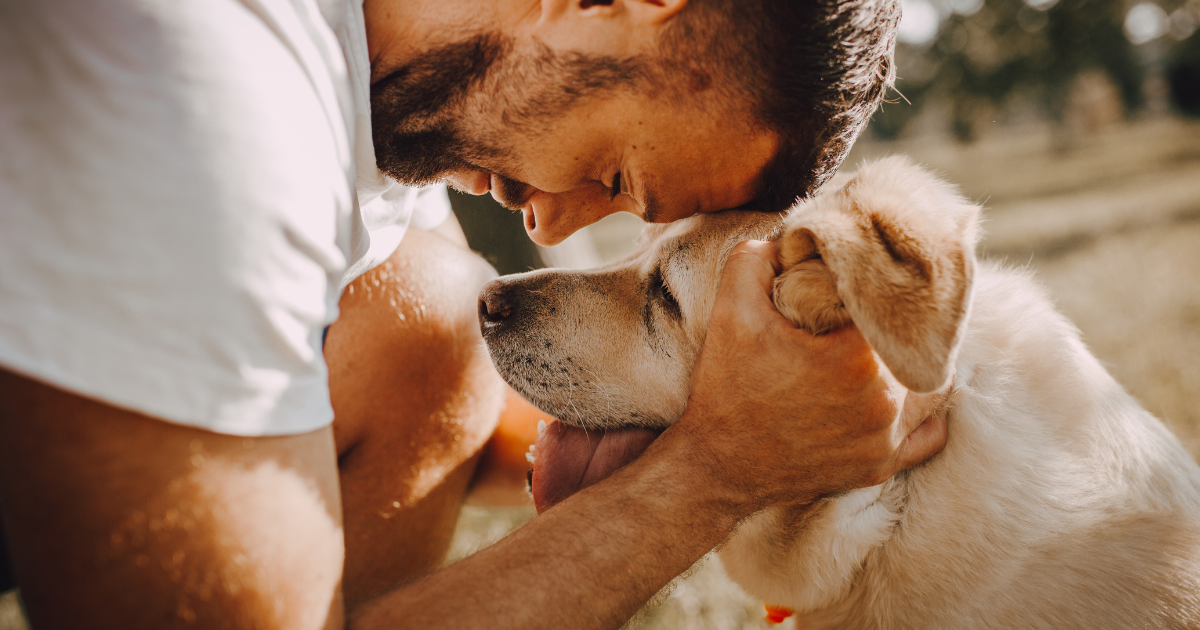Biological age in dogs: what it means and how to improve it
Your dog’s biological age says more about their health than their birthday ever could. Discover the key factors that influence canine ageing, and take our free test to see how your dog’s really doing.

Biological Age vs. Chronological Age, What’s the Difference?
Most of us track our dog’s age by their birthday (or their gotcha day). That’s their chronological age, how many years they’ve been on the planet.
But just like in humans, not all dogs age the same way.
Some dogs slow down early. Others stay bouncy and bright-eyed well into their teens. That’s because their biological age, how their cells, tissues, and organs are actually functioning, can be younger (or older) than their calendar years.
Calculate your pups biological age in <2 mins here
So How Are They Different?
Chronological age is fixed. You can’t change the day your dog was born.
Biological age, on the other hand? That’s influenced by how your dog lives. In simple terms, we can think of it as nature vs. nurture.
It’s a more accurate picture of their true health, not just their time alive. A 7-year-old dog with a great diet, regular exercise, and low stress might have the body of a 5-year-old. And another dog the same age with chronic inflammation or untreated dental disease might be ageing faster than you think.
The good news? You can influence biological age, and even slow it down.
How Do We Calculate Biological Age in Dogs?
At Elita, we’ve created a free biological age test to help you understand how your dog is really ageing. It takes into account the key lifestyle and health factors we know can impact long-term wellbeing.
1. Weight Management
Overweight dogs age faster, it’s linked to joint damage, inflammation, and even cancer risk. Keeping your dog at a healthy weight is one of the biggest things you can do to improve their healthspan.
2. Complete, Balanced Diet
A diet rich in nutrients, healthy fats, and quality protein fuels every cell in your dog’s body. Gut health, skin, brain, joints, it all starts with what’s in the bowl.

3. Regular Exercise
Daily movement helps keep joints lubricated, muscles strong, and weight in check. Whether it’s a walk, fetch, or a gentle swim, exercise is essential for ageing well.
4. Mental Stimulation
Just like humans, dogs need brain workouts too. Puzzle toys, training games, and new experiences keep their minds sharp and stress low.
5. Socialisation
Dogs are social animals. Regular, positive interaction with people and other pets helps reduce anxiety and improves overall wellbeing.

6. Health Check-Ins
Regular vet visits catch problems early, from dental disease to arthritis. Preventive care = longer, healthier years.
Take the Free Biological Age Test Today
Curious about how your dog’s really ageing? Our biological age calculator gives you an estimate based on lifestyle and health factors, plus some clever build and logic from our clinical team.
Want to Store Your Dog’s Healthiest Years?
Biological ageing might be inevitable, but the timing of when you take action matters.
Stem cell banking captures your dog’s healthiest cells now, so you can use them if health issues arise later.
Learn about our stem cell banking here
